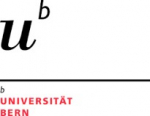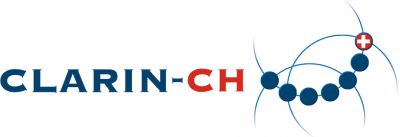Content
This is an old revision of the document!

The University of Bern is represented in the CLARIN-CH Consortium by Prof. Sandrine Zufferey, from the Institute of French Language and Literature.
The community from the University of Bern provides CLARIN-CH language resources and expertise in language sciences, and it is actively involved in research projects involving language resources.
Language resources
The Online Corpus of Linear Elamite Inscriptions (OCLEI) is a tool for computer-assisted analysis of Linear Elamite, an undeciphered syllabic writing system used in the late 3rd millennium BC. It supports a Unicode version of all the sign variants and allows for a statistical analysis of the texts. Currently, 50 Linear Elamite inscriptions and fragments are known (41 when collating the fragments of a single artefact).
Faculties and Departments involved in CLARIN-CH
Faculty of Human and Social Sciences
1. English Department
Areas of expertise in the field of Linguistics:
- Dialectological data collection
- Digital discourse
- Discourse studies
- Language variation
- Language ideologies
- Language and dialect obsolescence
- Language and global mobility
- Linguistic anthropology
- Relationship between language and identity
- Sociolinguistics
- The dialectological consequences of geographical mobility
- The dialectology – human geography interface
- Variation and change in contemporary English
- Variationist sociolinguistics
2. Institute of French Language and Literature
Areas of expertise in the field of Linguistics:
- Acquisition of prosody in L2
- Contrastive linguistics
- Computational linguistics
- Discourse
- Language acquisition
- Lexical segmentation and foreign accent
- Linguistic change
- History and epistemology of linguistics
- Neurolinguistics
- Pragmatics
- Psycholinguistics
- Perception and production of temporal variables
- Prosody and regional variation (in French and Spanish)
- Relationship between linguistics and psychoanalysis
- Saussurean linguistics
- Semantics
- Semiology/semiotics
- Speech technology
- Structuralism
3. Institute of Germanic Languages and Literatures
Areas of expertise in the field of Linguistics:
- Construction grammar
- Contrastive German studies and language typology
- Corpus linguistics
- Dialectology
- Grammaticalisation
- Graphematics
- (Historical) syntax and text linguistics
- Language history and language change
- Morphology/word formation
- Onomastics (surname geography, name grammar)
- Variation (text type variation)
4. Institute of Italian Language and Literature
Areas of expertise in the field of Linguistics:
- Bilingualism
- Italian dialect contact
- Italian in Switzerland
- Pragmatic linguistics and conversation analysis
- Second language learning
- Sociolinguistics of Italian
5. Institute of Spanish Language and Literature
Areas of expertise in the field of Linguistics:
- Discourse Studies
- Language and society (19th, 20th, and 21st centuries)
- Linguistic Anthropology
- Sociolinguistics
6. Institute of Linguistics
Areas of expertise:
- Anthropological linguistics
- Diachronic linguistics
- Endangered languages
- Evidentiality
- Evolution of language
- Historical linguistics
- Indigenous languages
- Morphosyntax
- Morphological typology
7. Center for the Study of Language and Society
Areas of expertise:
- Dialectology
- Ethnography
- Experimental Sociolinguistics
- Interactional Sociolinguistics
- Language variation and change
- Language and Identity (particularly gender, sexuality, race, nation)
- Language, Inequality and Bias
- Sociophonetics
8. Digital Humanities
Areas of expertise:
- Critical Algorithm Studies
- Digital History
- Epistemology of the Digital
- Machine Learning in the Humanities
- Text processing and information extraction after digital editing
- Theory of the digital humanities
